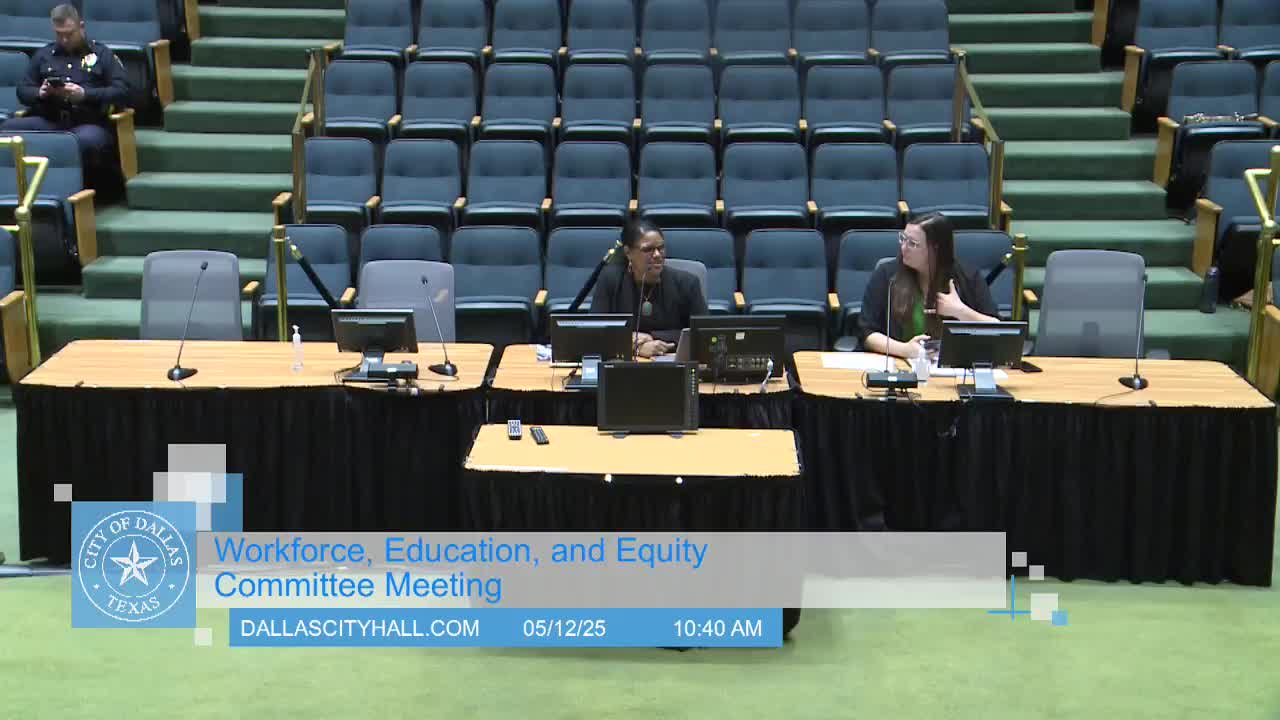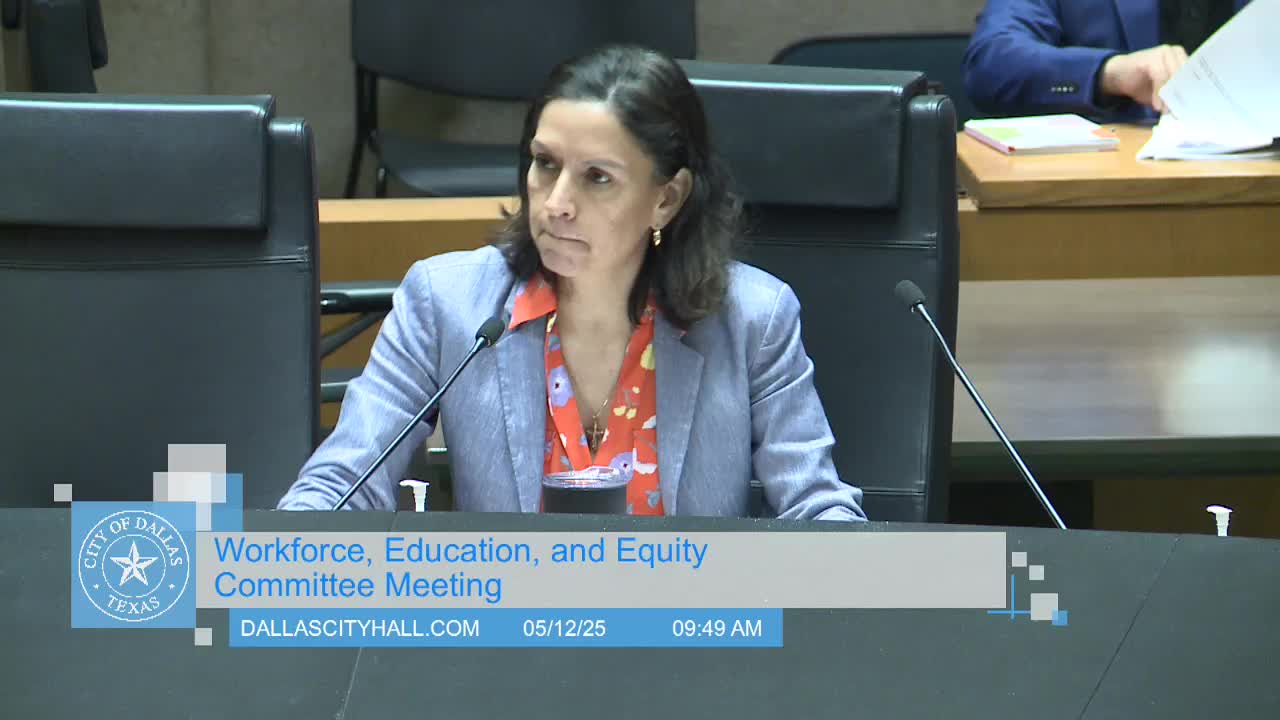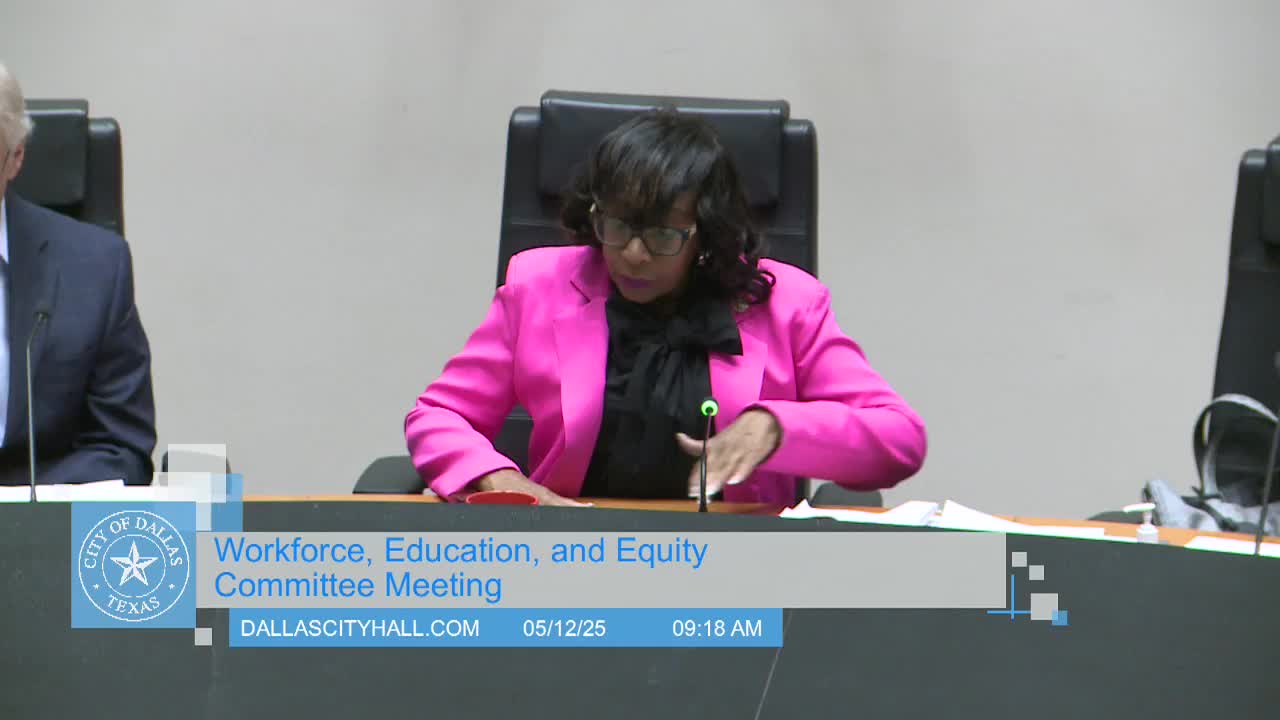Article not found
This article is no longer available. But don't worry—we've gathered other articles that discuss the same topic.

Committee accepts April 14 minutes; staff briefed on WIC, reentry housing and MIT digital navigator grants

Lone Star Justice Alliance presents youth safety strategic plan and public dashboard developed with National League of Cities

City’s Office of Community Care and Empowerment outlines youth strategic plan after 4,300-survey response effort

